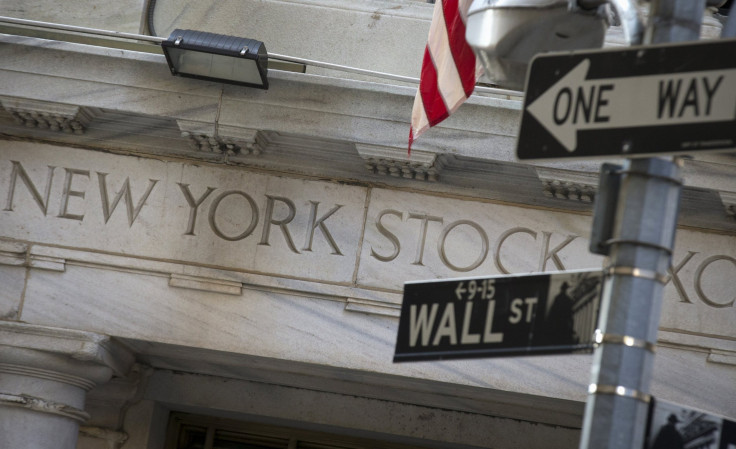Dow Jones Industrial Average, S&P 500 Trade Mildly Higher Amid Inflation And Consumer Sentiment Data

U.S. stocks traded mostly flat Friday as investors turned their attention from China to the Federal Reserve. With two more economic indicators released Friday, market professionals are searching for further hints as to when the central bank plans on raising rates this year.
The Dow Jones Industrial Average (INDEXDJX:.DJI) added 39.49 points, or 0.23 percent, to 17,447.74. The Standard & Poor's 500 index (INDEXSP:.INX) edged down 2.74 points, or 0.13 percent, to 2,086.13. And the Nasdaq composite (INDEXNASDAQ:.IXIC) dipped 5.88 points, or 0.12 percent, to 5,028.09.
Global stocks traded mixed Friday despite the Chinese central bank’s attempts to soothe fears of a devalued yuan this week. China's Shanghai composite index closed the day flat, up just 0.3 percent.
Meanwhile, the pan-European Stoxx 600 index closed flat Friday, losing 2.6 percent for the week amid the Greek government approving a new 85 billion euro ($94 billion) bailout agreement. The deal is expected to be cleared by eurozone finance ministers Friday, and will face a vote from the German parliament next week.
Seven of the 10 S&P 500 sectors traded higher, led gains in financial and industrial stocks. Chemical maker DuPont Co. (NYSE:DD) and mining and equipment maker Caterpillar Inc. (NYSE:CAT) led the Dow higher Friday, gaining 1.3 percent and 1 percent, respectively.
U.S. crude oil steadied on Friday after falling to its lowest in almost 6-1/2 years as huge stockpiles and refinery shutdowns heightened concerns about global oversupply.
U.S. wholesale prices recorded back-to-back-to-back gains in July, as the Producer Price Index rose 0.2 percent last month, topping economists’ expectations for 0.1 percent increase after rising 0.4 in June, the U.S. Bureau of Labor Statistics reported Friday.
Despite the monthly uptick, economists expect modest wholesale inflation in the coming months, driven by lower gasoline prices and a stronger dollar. Tepid inflation could make Fed officials hesitant to raise interest rates next month.
Separately, U.S. consumer sentiment edged mildly lower in August for a second month with the declines reflecting households are preparing for the expected increases in interest rates. The University of Michigan's Consumer Sentiment Index came in at 92.9 this month, lower than the previous month's reading of 93.1 and below forecasts for 93.5.
"Renewed strength in personal finances largely offset slight declines in prospects for the national economy and buying conditions," said Surveys of Consumers Chief Economist Richard Curtin in a statement.
But after the solid increase in retail sales in July, economists say this level of confidence among consumers still suggests strength in sales will continue. “This should help to ease any concerns that outlook for consumption growth has weakened recently,” Adam Collins, assistant economist at Capital Economics, said in a note Friday.
© Copyright IBTimes 2024. All rights reserved.






















